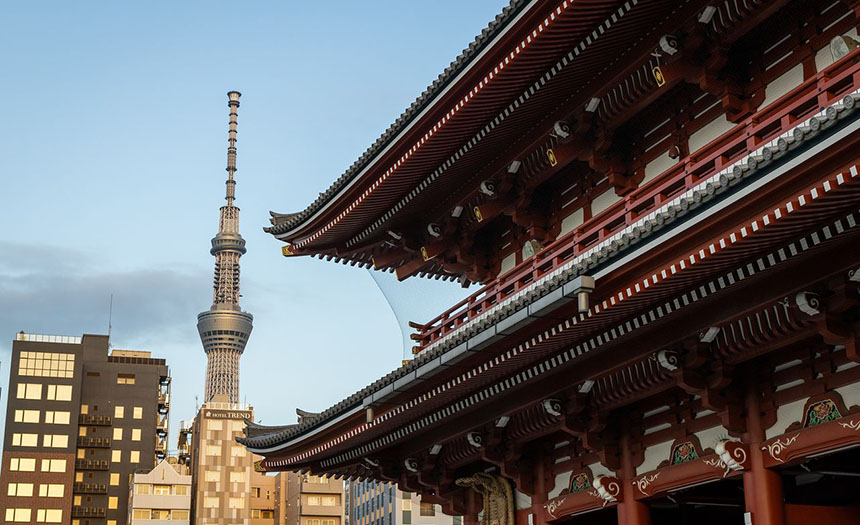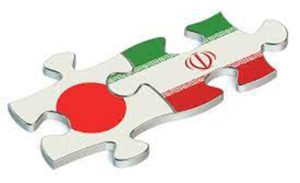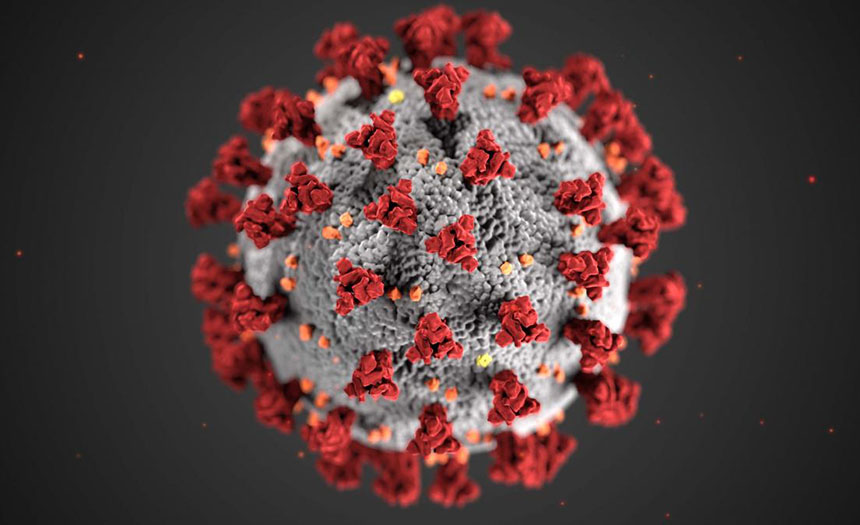By: Trends Editorial Team
 With degrees from Colombia Law School and University of Tokyo, Ambassador Kazutoshi Aikawa is a career diplomat with a 23-years tenure at various capacities around the world, including Japan’s Permanent UN Mission in New York, Deputy Chie of Mission at the Japanese Embassy in Washington as well as various roles in Asiăn and global organizations such as ASEAN, APEC and G8/G7, Beside diplomacy, Ambassador Aikawa has a deep appreciation for art and culture. This is his second tenure in Tehran, with the first one being Deputy Chief of Mission back in 2008.
With degrees from Colombia Law School and University of Tokyo, Ambassador Kazutoshi Aikawa is a career diplomat with a 23-years tenure at various capacities around the world, including Japan’s Permanent UN Mission in New York, Deputy Chie of Mission at the Japanese Embassy in Washington as well as various roles in Asiăn and global organizations such as ASEAN, APEC and G8/G7, Beside diplomacy, Ambassador Aikawa has a deep appreciation for art and culture. This is his second tenure in Tehran, with the first one being Deputy Chief of Mission back in 2008.
Thank you so much for making time for this exclusive interview with Trends despite your busy schedule, we are very grateful… If you were to summarize the state of affairs between Iran and Japan, in terms of political relations as well as trade activities and cultural exchanges, how would you describe it?
First of all, I would like to thank “Trends” to give me this opportunity. Actually, this is my second assignment in Iran. I have a lot of fond memories from my last assignment in Iran.
With a population of 80 million, and borders shared with many countries, there is no doubt Iran is one of the most important countries with great potential from geographic, historic and economic points of view. Time was too short for me to know all about Iran during my previous assignment which was from 2008 to 2010. I am very honored to work here this time as Ambassador.
The diplomatic ties between Japan and Iran date back to 1929, while the friendly and fruitful interactions between people of the two countries date far back beyond that and have more than 1200 years of history.

Japan and Iran celebrated their 90th anniversary of diplomatic relations in 2019. In the same year, there were frequent reciprocal visits by key officials, including then Prime Minister ABE’s visit to Iran in June of that year and President Rouhani’s visit to Japan a few months later in December. The two countries also held various anniversary events throughout 2019, during which they reaffirmed their traditional friendly relations. Naturally, Japan will continue to enhance the friendly bilateral relationship with Iran.
The traditional friendship that has lasted for very long time and is continuing to this day is a great asset for both Japan and Iran. Tapping into this historical good relationship, we can further strengthen co-operation between the two countries, politically, economically and culturally, as well as in people-to-people exchanges. We feel this bilateral relationship has great potential.
Notwithstanding the current difficulties in business atmosphere in both countries, Japan regards Iran as one of its important trade partners. We hope business activities of Japanese companies can soon further expand in Iran. In terms of cultural and intellectual exchanges, both countries have strong interests, and each Embassy has held various cultural programs in cooperation with their host nation’s organizations. In addition, we actively exchange foreign students to reinforce mutual understanding between our citizens and deepen our diplomatic and academic relations.
Iran and Japan have been industrial and trade partners for a long time and Japan has been quite involved in the development of some of our main national industries such as energy and petrochemicals, and consumer electronics. What has the history of the engagement of the two countries in these areas been like? Also, what is the trade volume between Iran and Japan today? What products and services are still being exchanged, if any? In the future, what sectors/fields could potentially be of interest to Japan and Japanese companies? Gas, transportation, renewable energies, agri-food sectors come to mind for instance.
Since 1929, when the diplomatic relations between Iran and Japan first started, the economic exchange between the two countries has continued to develop and expand in various areas, to the point that in 2008 the trade amount between the two countries reached $20 billion. The Islamic Revolution of 1979 did not affect our business relations and in fact after the Iran Iraq war (1980’s), our engineering and industrial collaborations grew in new ways.
Participation of Japanese companies in national projects, as well as investments and loans provided to Iranian organizations by Japanese government resulted in a variety of projects. From the beginning of the year 2000, Government of Japan along with the country’s private sector have tried to promote opportunities for boosting the bilateral trade and cooperation between Iran and Japan despite the unfavorable situation caused by external factors. Until now, agreements for humanitarian aids and (Official Development Assistance) have remained in effect. Moreover, under the ODA umbrella, Japan has been able to further expand our bilateral and traditional friendly cooperation by engaging in development projects that help strengthen the economic relations with Iran, while conforming to Iran’s national development plans.
What do you see as the biggest hurdles for doing business between the two countries? How are US sanctions, lack of data for investors and traders, and commercial domestic rules and regulations harming doing business between Iran and Japan? What do you see as post-sanctions opportunities and challenges between the two countries in terms of industrial cooperation and trade?

As mentioned, Iran-Japan economic relations have a long history. But alongside this history, there exist many challenges such as restrictions on trade due to sanctions, geopolitical risks, and disparities in legal/tax/accounting regulations. The economic relations between Iran and Japan are currently being sustained by private companies. They have kept their presence in Iran for a promising future. We expect improvements in business conditions in Iran and expansion of Japanese enterprise activities here.
Japan is world renowned for its distinctive brands from SONY and Panasonic to Toyota and Honda, and is home to industrial power houses such as Mitsubishi, Marubeni, Sumitomo and Mitsui. In your opinion, what makes the “Made in Japan” motto so exceptional? Is it innovation, creativity, design, or perhaps the Japanese work ethics and business culture?
When we say “Made in Japan”, we mean a product made with Japanese standard of “quality”, “safety”, “durability” and “sustainability”, which all together create “reliability” for the customer who selects a Japanese brand. And yet the manufacturing mechanism in Japan is still actively evolving. We believe there is still room for improvement in several areas of manufacturing and branding, such as cost cutting, efficiency and achieving flexibility in responding to the needs of world markets. Toyota cars, many of which you find on roads all over the world, are a phenomenal example of “Made in Japan”. We believe that most Iranians have recognized what goes into the story of “Made in Japan” and therefore have a good impression of Japanese brands.
The theme of this edition of Trends is Smart Cities. How did Japan become a pioneer in so many areas of development of smart cities, in communications, transportation, smart homes and offices? Which government body and organization(s) are involved in the development of smart cities in Japan? What are some of the current and future initiatives to make mega cities such as Tokyo even smarter?
The importance of smart cities as a solution is growing due to the emergence of global issues including: first the increase and surge in disasters caused by climate change; and second a need for measures against infectious diseases like the novel coronavirus and the guidelines for safe social interaction, etc.Japan is advancing projects under the principles of Society 5.0 where we promote smart cities that widely use digital technology. Society 5.0 is an initiative that aims at building a human-centered society while solving social issues and simultaneously achieving economic improvement by using cutting-edge technologies that integrate the cyber (digital)and physical (substance) spaces. Japan’s strengths are the experience and know-how obtained through a variety of domestic and international urban development projects. For example, Japan has a track record of the world’s best urban development projects in terms of disaster prevention, disaster reduction, and public safety.
Japan is also a leader in environmentally symbiotic cities such as eco-cities, as well as transit-oriented development (TOD) cities with no traffic congestion, and is also a pioneer in development of the world’s leading optical fiber and 5G infrastructures. In future these urban solutions will be an essential foundation for creation of new services and improvements in the quality of life in cities through use of digital technology.Pursuant to the “Integrated Innovation Strategy 2020”, the Cabinet Office, together with the Ministry of Internal Affairs and Communications, Ministry of Economy, Trade and Industry, and Ministry of Land, Infrastructure, Transport and Tourism of Japan have initiated the “smart city public-private partnerships” with companies, universities / research institutes, local public organizations, and related ministries, in order to accelerate smart city initiatives through public-private partnerships. Japan is a developed country where we are facing urban challenges today that many cities around the world will face in future, such as rapid infrastructure aging and frequent urban disasters.
As such, it is incumbent on us to utilize Japan’s high technological and R & D capabilities to present solutions to various urban problems, create new value, and present smart city models to the world in an easy-to-understand manner. In terms of data utilization in the smart city model, so-called “Principles for Transparency and Trust” have already gained consensus from leading countries and major cities all over the world. “Joint Statement on Data Protection and Privacy in the COVID-19 Response” by United Nation also emphasized that health-related protocols should be used to protect personal and non-personal sensitive data and security of data in general.

The international standards for smart city have been deliberated by many international standardization bodies, not only at IEC and ISO levels, but also within the Joint Technical Committee 1(JTC1). Moreover, Japan plays an important role for ISO/TC268/SC1 (Smart community infrastructures) as the Secretariat of the Committee. Within this body, the idea of “City Resilience” and “Smart City” is one of the essential elements to focus on. In keeping with this priority, in October 2020, the new working group (WG6) proposed by Japanese Industry Standards Committee (JISC) for “Disaster risk reduction” was established. Based on openness and transparency as the central principle and concept of the whole project, Japan aims to build smart cities where all citizens and businesses can participate equitably. The operating system of Japan’s urban cities that embodies this concept is an information coordination platform. The platform collects and manages all kinds of urban data on participating cities, thoroughly taking into account residents’ perspectives, providing complex and personalized services as well as having data interoperability and distribution capability that can also be extended to other cities. Furthermore, Japan’s urban operating system has the ability to expand easily in response to regional growth and technological development, allowing the system to be maintained and upgraded continuously and with agility. In this context, Japan’s smart cities are oriented around free, reliable and rational norms. Under these guidelines, large companies are not allowed to monopolize data and likewise, states may not monitor data handling. This is the “originality of Japan” that complies with the DFFT (Data Free Flow with Trust) presented at the G20 Osaka Summit.
Are there any business delegations visiting either country any time soon, either in person or virtually? If so, in what sector(s) and when? Are there any major cultural/artistic or sports activities between the two countries planned for 2021?
With the COVID-19 pandemic spread throughout the world, every government across the globe has been forced to cope with this unprecedented situation as a high priority. This has led to some difficulties in face-to-face communication between countries, although there have already been numerous video conferences and webinars between Japan and Iran in 2020. So, notwithstanding all the obstacles, it has been possible to continue our communications online and we have been able to maintain and even strengthen the alliances among relevant organizations. With regard to major cultural/artistic or sports activities between the two countries, the Embassy of Japan in Iran has organized and supported various cultural, academic and sports events and activities here in order to promote mutual exchanges between Japan and Iran, to boost pro-Japanese sentiments among people of Iran and to further improve Iranians’ positive image of Japan.
Having said that, due to COVID-19 outbreak around the world, as mentioned above it has become much more difficult to carry out in-person cultural events and academic/ sports exchanges as in the past. Because of the COVID-19 situation in Iran, the Embassy will be considering carefully whether it organizes the usual cultural events this year. On the other hand, our Embassy has increased its online cultural activities since the pandemic. After holding the “Online Japanese Speech Contest” as the first online cultural event last summer, the Embassy organized other such events like the “Logo Competition for Information and Culture Center of the Embassy” (January 2021) and “Online Japan Cultural Month” (March 2021).
In addition, the Embassy periodically posts short videos describing different facets of the Japanese culture or clips introducing simple Japanese food items by the personal chef of the Ambassador. We have also started holding regular online briefing session since last February about studying in Japan. Fortunately, these new activities have been generating a huge number of favorable feedbacks, and we have seen a large increase in the number of followers of our Instagram account from 4,100 to over 11,000 in the last 6 months. The Embassy regards SNS and internet as an important tool for Public Diplomacy in Iran currently and plans to continue to be active in online events as well as in face-to-face exchange programs.

Speaking about sports, the Tokyo Olympics is fast approaching with the world waiting to see whether it will go on with live audiences or once again be postponed -or at least modified – due to the Pandemic. What is your opinion on this?
The revised schedules and venues for Tokyo 2021 Olympic and Paralympic Games, which were determined last July at the International Olympic Committee (IOC) Session, will start with the Opening Ceremony on July 23rd this year. All parties involved are working together to prepare for the successful realization of the Games this summer. The Government of Japan will implement all possible countermeasures against COVID-19 and continue to work closely with IOC, Tokyo 2021 Organizing Committee and Tokyo Metropolitan Government, in preparations for holding a safe and secure Games program this summer.
Japan, unlike Iran and many other countries, did not suffer much from the Covid-19 outbreak. Do we know why? Was it because of Japan’s experience in handling pervious crises, the Japanese population observing social distancing and rules, or are there other explanations? What have been some of the lessons learnt in Japan from the pandemic? Is there currently any cooperation happening between the two countries on that front? How can we leverage each other’s experiences to better face future pandemics?
The spread of COVID-19 is a serious problem affecting economies and lifestyles around the world. In Japan, infection cases and death by COVID-19 numbers are fewer than many other countries. It is assumed that the Japanese lifestyle and health care system may have contributed to this phenomenon.
With respect to lifestyle, Japanese people have customarily worn face masks from before the pandemic and they take off their shoes inside the home. Hugging and shaking hands are also not common.
As for the healthcare system, all residents have health insurance and they can visit health clinics anytime and anywhere at a low cost. Perhaps as a result, the number of acute care beds, CT scans and doctor visits are all higher than in other countries.
On the other hand, in today’s world where economic activities are sustained by the global flow of people, it is important to take measures to prevent the spread of infectious diseases in collaboration with the international community. The Government of Japan will proactively lead international efforts in collaboration with international partners and through providing assistance to other countries.
Under this provision, the Government of Japan has so far contributed an emergency assistance totaling $27.5 million to Iran through international organizations for their efforts in fighting the virus. This aid includes technical assistance to medical personnel as well as donation of relief supplies to the medical facilities in Iran.
In addition, under the “Supplementary Budget Scheme” of Fiscal Year 2020 of the Government of Japan, we decided to donate about $7 million to Iran this February to respond to COVID-19 pandemic in the country.
As an attempt to share Japanese lessons learnt during the COVID-19 pandemic with Iran, a webinar about Continuation of Non-Infectious Disease Treatment and Hospital Management in Japan during COVID-19 pandemic was held in November 2020 with the cooperation of the Japan International Cooperation Agency (JICA) Iran Office. The webinar was attended by numerous participants from the Ministry of Health of Iran, and medical universities and hospitals across the country. We hope to continue these kinds of cooperative programs in future.
Your previous post was in Washington DC and you had been in Iran previously for another diplomatic assignment before returning as the Ambassador. How do you view the current situation between Iran and the US? Are you optimistic about the future of the JCPOA? Based on the outcome of a possible resumption of negotiations, can we expect further improvement of economic activity between Iran and Japan in the foreseeable future, given the challenges including political climate in the US, the sanctions etc.?
Japan has consistently supported the JCPOA, as it contributes to strengthening the international non-proliferation regime and thereby to the stability of the Middle East. Japan strongly hopes that member parties of the JCPOA will return to full compliance with their commitments under the Agreement. We are not a party to the JCPOA, but if there were a role for Japan to play, we have performed our part and are still always ready to do what we can to support the parties to this end.
Once the JCPOA is fully restored and the stability of the region further enhanced, that scenario would certainly create a better environment to further boost the Japan-Iran trade as well. Japan and Iran have enjoyed a long and traditionally friendly relationship. Japan has maintained a good relationship with Iran even during very challenging times, and has continuously made meaningful diplomatic efforts towards enhancing stability in the Middle East.
The prime example of this close relationship between our countries is the visit by former Prime Minister ABE to Iran in June, 2019. His visit was made under a difficult situation at that time. Mr. ABE had cordial and tenable discussions with Dr. Rouhani and paid a courtesy call on Supreme Leader Ayatollah Seyed Ali Khamenei to find a way to ease tensions and create a path towards peace and stability in the region.
Our commitment to enhancing good bilateral relationship with Iran and to contributing to peace and stability in the Middle East remains unchanged. We will therefore continue our sincere efforts.I myself, returned to Iran after ten years and am once again deeply impressed by the great potential of Iran in various fields. I am convinced that the relationship between Japan and Iran can expand further, and I will do my utmost effort to realize it with the cooperation of friends in Iran.


